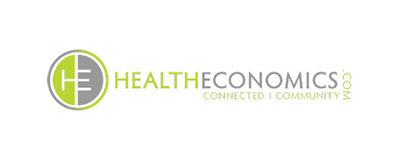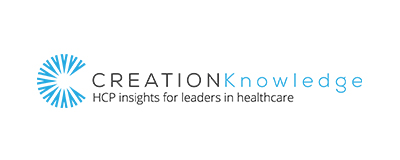Introduzione
The life science industry is discovering the power of artificial intelligence (AI) and has started leveraging it in various aspects of research and development.
Different techniques and machine learning (ML) algorithms, including natural language processing, have emerged and are helping in gathering, analysing and even interpreting the huge data arising out of RWE databases. Similarly, Predictive analytics are a new reality and can change the way we discover and market new drugs.
Indeed, up to a recent past, observational research tools were, in the great majority, simple palliatives to the ones used in randomized clinical trials, trying to accommodate the lack of rigor and the many biases of observational data. For the first time in history, newly developed observational research techniques and tools are unique to big data and do not necessarily overlap with the traditional statistical approaches used in pivotal registrations trials.
The objective of this online conference is to familiarize the audience with the new capabilities that are being made available in the field of artificial intelligence and machine learning in relation to its application to real world data.
Beyond the hype, EPI Forum will address the benefits and limitations of this new approach and discuss how it can complement traditional approach to observational studies.
Understanding the scope and depth of AI and machine learning is important in the current environment. Speakers with experience in AI/ML will share insights and illustrate the subject with examples and demonstrations.
The EPI Forum Scientific Board
Christian Agboton - Sr Global Brand Medical Director at Takeda
Maurille Feudjo Tepie - Observational Research Director at Amgen
is inviting you to this unique event, where you will be able to understand how AI/ML can complement or in some cases increase the value of current approaches using real world data.
Who should attend?
The conference is addressed to professionals with an interest in drug development, healthcare decision making, academia and healthcare research, belonging to department such as: Medical Affairs, R&D, HTA/Market access, Medical Informatics, Clinical Operations, Regulatory Affairs, Pharmacovigilance, Biostatistics and Data Management from Pharmaceutical, Biotechnology and Medical Device companies, CROs, Universities/Hospitals, Academic Research, Patient Associations and Healthcare Organizations.
Programma
All the below mentioned times are CEST
05 October 2021 |
||
|
10:00 am
10:15 am |
Welcome and presentation of the Speakers
|
|
|
10:15 am
10:45 am |
Opportunities and challenges of RWD/E in drug development and commercialisation: The potential roles of some of the advanced tools such as ML/AI
Maurille Feudjo Tepie
- Observational Research Director at Amgen
Real world data (RWD) has been described as data that are routinely collected within health systems on a patient’s health status, in a purely observational fashion and; real world evidence (RWE) presented as evidence derived from analysis of RWD. As the healthcare ecosystem around the world continues to face, pressures from an ageing population, an escalating drug development cost, an increased drug prices, limited/restricted reimbursement and/or push toward personalised/stratified medicine; pharmaceutical companies as well as many other stakeholders are looking to capitalise on the increased availability of RWD, powered by advances in information technology and epidemiological methods, to alleviate some of these pressures. Advances in technology in particular, while increasing the availability of bigger and better data, has also facilitated faster computers with unprecedented storage power. The later has brought to life some of the advanced analytical tools such as ML/AI whose long-recognised promises, have for decades been hampered, among others, by computing power and limited data. In the pharma industry, there is a call for increased use of RWE to help define, differentiate and deliver value across the drug life cycle. During this talk we will recall some of the key elements why the scientific community now believe ML/AI potentially has a critical role to play in drug development and drug commercialisation, this from the discovery phase with a better leverage of bigger and better omics and imagine data, right through the clinical development phase with better and innovative trial designs; to the commercialisation phase with an optimally customised healthcare, treatment and practices. |
|
|
10:45 am
11:15 am |
Evaluating digital health technologies – future challenges and opportunities
Pall Jonsson
- Programme Director - Data at National Institute for Health and Care Excellence
Digital health technologies – including those driven by artificial intelligence and machine learning – are providing new opportunities to operationalise previously untapped and rapidly growing sources of data for patient benefit. These new and potentially disruptive technologies are however posing challenges to regulators and health technology assessment bodies. How should the agencies assess safety, effectiveness and cost effectiveness of such technologies? Currently, such assessments are difficult because we lack guidance on what differentiates good from bad at the different stages of the healthcare-related ML/AI development pipeline, from design and data analysis, through to reporting, and evaluation of effectiveness/impact on health. In this presentation we will look at some of the questions that healthcare decision makers should consider and NICE’s approach to evaluating new and emerging digital health technologies will be outlined. |
|
|
11:15 am
11:30 am |
Break
|
|
|
11:30 am
12:00 pm |
Challenges of AI in Clinical Research: seeing beyond the algorithms
Christian Agboton
- Sr Global Brand Medical Director at Takeda
Observational studies and real world evidence (RWE) in general are a unique resource that is difficult to ignore in our current approaches to better understand the advanced medications that we are developing. So far, statistical approaches and interpretation of observational data were largely based on techniques developed for traditional randomized clinical trials; and could be considered as an extension of the set of tools used in registrations trials. Some RWE statistical methods such as propensity score matching were even developed in order to “simulate” a cohort randomization. With the advent of AI/ML, for the first time, a set of tools never used in any other clinical research is coming on us, with a lot of promises but also some challenges that we will describe. AI/ML has the potential of being transformative, offering insights not accessible before with traditional analytical techniques. However, the lack of transparency of algorithms and the “black box” ethos might impede the trust researchers could have in AI/ML. This aspect coupled with the quality of data (garbage in, garbage out) is a barrier to further adoption. |
|
|
12:00 pm
12:30 pm |
Phenotype libraries as means to portability and transparency of patient definitions
Vasa Curcin
- Reader in Health Informatics at King’s College London
A phenotype definition specifies cohorts of patients that exhibit certain phenotypic traits, such as the same diseases, characteristics, or set of co-morbidities. Electronic health record (EHR)-based phenotype definitions (also referred to as phenotyping algorithms) express the logic required to identify such a cohort from patient health records. Phenotype definitions can be represented in many forms, including narrative descriptions, pseudo-code, or in a standard structured format. A high-quality definition is one that can be easily implemented across multiple organisations and datasets (portable); one that can be implemented accurately, to facilitate complementary research or validate existing results (reproducible); and one that is shown to effectively capture the disease or condition modelled (valid). Phenotype libraries provide a platform through which a phenotype definition can be uploaded, stored, indexed, retrieved, and downloaded by users. Rather than just passively cataloguing definitions, these platforms can also impact the quality of the phenotype definitions they host. One way to do this is for a library to facilitate parts of the phenotype development lifecycle often considered extraneous, including modelling, implementation and validation. For example, libraries that host definitions structured according to some set of standard models, and track the evolution of definitions under these models, often contain phenotypes that are clearer to understand and thus have the potential to be more reproducible. We shall discuss a number of desiderata for the development of phenotype libraries, to ensure that future libraries are designed to maximise the quality of the phenotypes they contain. |
|
|
12:30 pm
1:30 pm |
Lunch break
|
|
|
1:30 pm
2:00 pm |
Real-World Evidence and Digital Innovation in Healthcare
Kelly H. Zou
- Head, Global Medical Analytics and Real World Evidence at Viatris
Digital endpoints can be used based on data through various sources, such as apps, sensors, and wearables such as smart watches, for example, under the bring your own device model. Digital therapeutics may be evaluated through randomized controlled trials (RCTs), pragmatic clinical trials (PCTs), or real-world data (RWD). The corresponding endpoints may be collected continuous in routine daily living and real-time activities, rather than settings such as doctors’ offices or hospitals. Digital endpoints (DTx) may be useful for remote patient monitoring and continuous tracking of patient responses and wellbeing through digitalization of patient diaries, electronic patient-reported outcomes (ePROs), mobility, medication use, and activities to generate real-world evidence (RWE) beyond RCTs. Therefore, they are useful in medical research via de-centralizing RCTs. This presentation aims to: review the uses of digital endpoints and digital therapeutics in various types of studies; examine how cutting-edge digital innovation can potentially improve medication adherence; share some best practices by study type, RCTs, PCTs or RWD, for evidence-generation; discuss advantages and limitations. Key words: Digital Endpoint; Digital Therapeutics; Randomized Controlled Trial; Pragmatic Clinical Trial; Real-World Data and Evidence; Electronic Patient-Reported Outcome. A brief overview of methodology 1. Review the uses of digital endpoints and digital therapeutics in various types of studies |
|
|
2:00 pm
2:30 pm |
Use of AI/ML by Payers in Assessing Value and Integrating RWE Innovative Reimbursement Models
Omar Ali
- Visiting Lecturer Value Based Pricing at University of Portsmouth & Former Adviser to NICE
During the presentation the speaker with deal with the following topics:
|
|
|
2:30 pm
2:45 pm |
Break
|
|
|
2:45 pm
3:15 pm |
CAncer PAtients Better Life Experience (CAPABLE): Real World Data and novel methodologies in the service of cancer patients’ quality of life
Matteo Gabetta
- R&D Manager at BIOMERIS
The CAPABLE (CAncer PAtient Better Life Experience) project (https://capable-project.eu/), funded in H2020 program, is realizing a novel system to improve the quality of life of cancer patients managed at home. Project team is formed by experts in complementary fields, such as data- and knowledge-driven AI, data integration, telemedicine, and decision support, with the shared goal of fully exploiting Artificial Intelligence for cancer care and bringing the benefits right to patients’ homes. Within the CAPABLE framework, predictive models, based on both retrospective and prospective data and computer interpretable guidelines, are made available to oncologists. Furthermore, CAPABLE’s Virtual Coach provides patients with decision support and lifestyle guidance to improve mental and physical wellbeing. CAPABLE project offers the opportunity to show different aspects of the Real World Data lifecycle because:
|
|
|
3:15 pm
3:45 pm |
Use of AI/ML to improve Secondary Prevention in ACS Patients: the PRAISE model
Fabrizio D'Ascenzo
- Medical Doctor, Division of Cardiology, Cardiovascular and Thoracic Department, Città della Salute e della Scienza Hospital, Turin; Department of Medical Sciences, University of Turin
Risk prediction for Acute Coronary Syndromes (ACSs) represents an unmeet need in medicine. In particular, prediction of risk of death may be of help to tailor aggressive lifestyle interventions and close clinical and with imaging follow up. Moreover, these patients are themselves at increased risk of recurrent thrombotic events, but in the mean time, due to use of antiaggregant therapy they are exposed to elevated risk of bleedings. “Traditional” risk scores, derived with mainly with logistic regression, are derived from patients suffering both ACS and stable angina, consequently with limited reproducibility in every day clinical practice. Moreover, Artificial Intelligence (AI) and Machine Learning (ML), through exploration of non-linear complex relationships may help to capture other kind of associations. In the PRAISE (PRedicting with Artificial Intelligence riSk aftEr ACS) study, 19826 patients were exploited to predict 1-year mortality, recurrent infarctions and major bleedings. Trials of four ML classifiers [Adaptive Boosting , Naive Bayes, KNN, Random Forest] were employed to generate four models for the prediction of each study outcome. The Adaptive Boosting, which performed superior to others, offered for 1-year all-cause death an AUC of 0.82 (95%CI 0.78-0.85) and 0.92 (95%CI 0.90-0.93). in the evaluation and the validation cohort, respectively. The PRAISE score for MI showed an AUC of 0.74 (95%CI 0.70-0.78) and 0.81 (95%CI 0.76-0.85) in the evaluation and the validation cohort, respectively. The PRAISE score for major bleeding showed an AUC of 0.70 (95%CI 0.66-0.75) in the evaluation cohort and 0.86 (95%CI 0.82-0.89). in the evaluation cohort and 0.86 (95%CI 0.82-0.89). in the validation cohort. |
|
|
3:45 pm
4:00 pm |
Conclusions
|
|
Relatori

Christian Agboton
Christian J. Agboton currently serves as Senior Global Brand Medical Director at Takeda based in Zurich, Switzerland. He previously served as Medical Director of Biosimilars Immunology / inflammation at Sandoz and Hospira/Pfizer. Christian also worked at GSK vaccines, Merck Serono and UCB Pharma in Clinical and Medical Affairs roles. Channeling innovation to deliver evidence while keeping quality and timelines has always been at the heart of his approach to data generation. Christian is Fellow of the Royal Faculty of Pharmaceutical Medicine (FFPM).

Maurille Feudjo Tepie
Dr. Maurille Feudjo Tepie is an Observational Research Director at Amgen and leads the Amgen European Team of the Centre for Observational Research. Prior to joining Amgen in 2009, he spent six years in the Worldwide Epidemiology Department at GSK. Maurille obtained his PhD in Medical Statistics from the London School of Hygiene and Tropical Medicine and then completed a one year post-doctoral fellowship working on a collaborative methodological project between the Worldwide Epidemiology Department of GSK and the London School of Hygiene and Tropical Medicine, under the supervision of Profs Stuart Pocock and Steven Evans. He has considerable experience designing and executing appropriate observational research strategies to inform drug development and drug commercialization and; is a keen contributor to scientific discussions pertaining to the challenges and/or opportunities offered to regulators, payers, academics, prescribers and to the bio-pharmaceutical industry by advances in computing science and the increased availability of real world data. He has been active in European-wide initiatives aimed at improving biomedical research (IMI PROTECT and EMIF) and is also the chair of the PSI Epidemiology Special Interest Group.

Omar Ali
Qualified with a hospital pharmacy background, Omar has been working as the Formulary Advisor for Surrey & Sussex Healthcare NHS Trust for over 15 years, sitting on the regional Joint Drugs & Therapeutics Committee as well as the CCG/Commissioning Prescribing Clinical Network.
Omar has been a visiting Lecturer at UCLH Pharmacy Programme and was both Lecturer & Examiner on the Independent Prescribing V300 Course at the University of Surrey and has over 30 publications to date. He has been appointed as Visiting Lecturer on Value Based Pricing & Innovative Contracting at the University of Portsmouth, is an Editorial Content Adviser to Guidelines, and has recently been invited to the position of Associate Editor to the Canadian Journal of Population Therapeutics & Clinical Pharmacology.
Omar has served a position on the External Reference Group on Cost Impact Modelling for NICE for 6 years and was subsequently appointed Panel Member for the newly formed Adoption & Impact Program Reference for NICE. He advises foreign investors (US Embassy) on ‘Value Based Assessments (hosted by the UK Department of Trade & Industry) and recently delivered a Healthcare NHS Reform program to over 40 Healthcare Insurance Provider delegates visiting from the US.
Last year he was invited to address the Italian Healthcare Senate [Senato della Repubblica] on Pharmaco-economic Evaluation & Sustainability Models of Healthcare and featured at the Westminster Health Forum Keynote Seminars [chaired by Lord Howe, All Party Parliamentary Group on Pharmacy] on the Future for Pharmacy Commissioning, Organisation & Delivery.
At this current time he has embarked on a PhD with his doctorate thesis entitled “Value Based Pricing & Outcomes Based, Innovative Contracting of New Medicines”.

Vasa Curcin
Dr Vasa Curcin is a Reader in Health Informatics at King’s College London and leads the Biomedical Informatics Group, focusing on reproducibility solutions based on data provenance, embedding clinical trials into routine practice, decision support systems as means of implementing Learning Health Systems in practice, and machine learning methods for detecting depression and anxiety disorders from social network behaviours.
Vasa completed his PhD at Imperial College London on semantics of scientific workflow systems. While working as a Bioinformatics Product Manager at InforSense Ltd, the application of his thesis to large real-world patient databases resulted in one of the earliest workflow-based phenotyping tools that has been used in both academic and industrial settings. He was a Farr Future Leader, is the King’s lead for Health Data Research UK network’s Phenomics and Clinical Trial Informatics themes. He is a co-director of the DRIVE-Health Centre for Doctoral Training in Data-Driven Health.

Fabrizio D'Ascenzo
Fabrizio works as researcher and interventional cardiologist in the Division of Cardiology of the University of Turin. His main interests of research range from management of Acute Coronary Syndromes (ACSs) both from an interventional point of view and secondary prevention to Transcatheter Aortic Valve Implantation (TAVI) focusing on the impact of Artificial Intelligence (AI) on medicine. He has published over 300 papers with an H-Index of 45 (Scopus).
He has taught several courses on statistics for non-statisticians, medical reading/writing combining both clinical and scientific skills.

Matteo Gabetta
Matteo Gabetta, PhD, is R&D Manager in Biomeris, a company that provides IT solutions for the management and analysis of data in the biomedical field. He obtained a master’s degree in computer engineering and a PhD in bioengineering at the University of Pavia. He is currently involved in data integration projects in the Life Science field aimed at supporting medical research and clinical practice.

Pall Jonsson
Pall Jonsson is Programme Director for Data at the National Institute for Health and Care Excellence. Pall has a background in research and experience in synthesising, analysing and appraising scientific and clinical evidence, gained through work in academia, not-for-profit sector and the pharmaceutical industry. He has doctorate in biochemistry and bioinformatics from University College London.

Kelly H. Zou
Kelly H. Zou, Ph.D., PStat® is Head of Global Medical Analytics and Real World Evidence, Viatris. She is an elected Fellow of the American Statistical Association and an Accredited Professional Statistician. Previously at Pfizer Inc, she was Vice President and Head of Medical Analytics & Insights; Senior Director of Real World Evidence, Group Lead of Methods & Algorithms and Analytic Science Lead; Senior Director of Statistics. She was Associate Professor of Radiology at Harvard Medical School, as well as Director of Biostatistics at its affiliated teaching hospitals. She was Associate Director of Rates at Barclays Capital. She received both MA and PhD degrees in Statistics from the University of Rochester and completed her Postdoctoral Fellowship at Harvard. Her research interests include health policy, real world evidence, signal detection, and artificial intelligence, with over 150 professional articles and 4 books. She was featured as an Outstanding Woman in Data Analytics by Forbes, an Inspirational Women in Statistics & Data Science by Wiley and the Royal Statistical Society, and an Accomplished Woman in Statistics and Data Science by the American Statistical Association.
Contatti
Valeria Quintily
Project & Scientific Manager
valeria.quintily@lsacademy.com
+39.329.4683329
Ilaria Butta
Events & Training Executive
ilaria.butta@lsacademy.com
+39.379.1492960
Quote di iscrizione
€ 410,00* Super Early Bird fee until 30 June 2021
€ 490,00* Early Bird fee until 17 September 2021
€ 630,00* Ordinary fee
€ 290,00* Freelance, Academy, Public Administration
* for Italian companies: +22% VAT
Fee includes: access to the virtual conference, organizational support, certificate of attendance, slide presentations in pdf format provided post-conference.
Edizioni Passate
Registrati

Versione Stampabile





